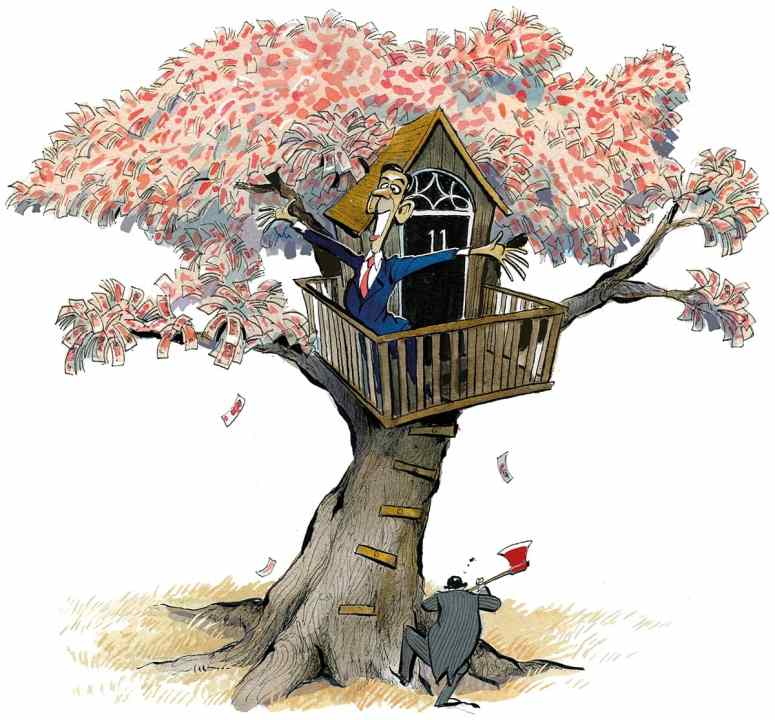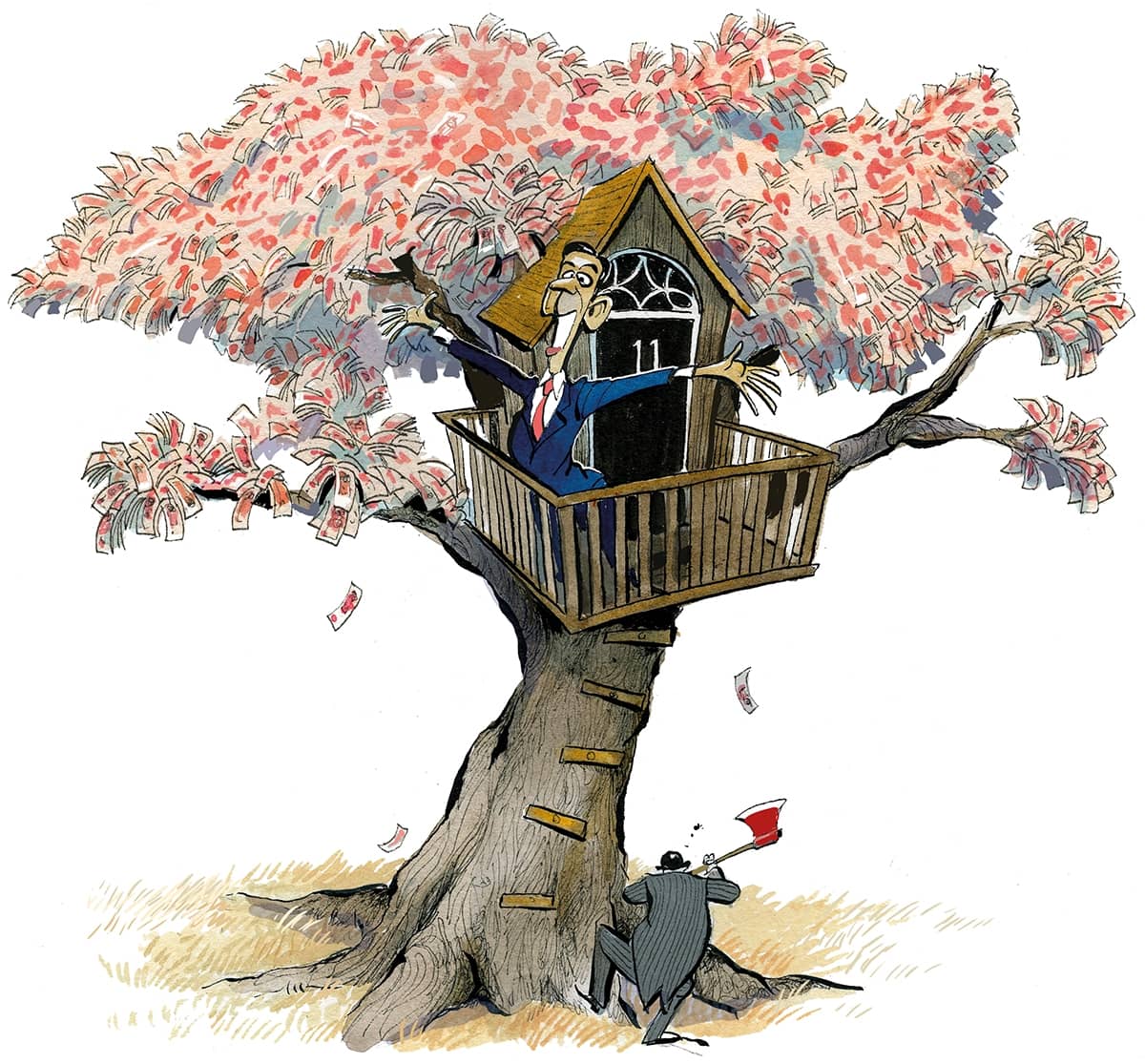Ask any main political party how they plan to sustain public services in the medium-term, and their answer will be to grow the economy. Ask the Tories or Labour how they might be more generous in the future – able to offer up more tax cuts, or higher public sector pay settlements – their answer will be to grow the economy.
Those parties got a rude awakening this morning, when the Office for National Statistics revealed that there was no economic growth in April. After better-than-expected growth in the first quarter of the year, which lifted the UK out of recession, the economy flatlined at the start of the second quarter, setting the country up for a more sluggish spring.
Services output grew by 0.2 per cent, with the largest contributions coming from the ‘information and communication’ sector, which rose by 2.3 per cent, and the ‘professional, scientific, and technical activities’ sector, which grew by 1.2 per cent thanks to an uptick in both science and market research. But these gains were offset by a fall in production output – down 0.9 per cent – and a contraction in construction output – down 1.4 per cent, which is largely being attributed to the month’s bad weather.
Miserable weather can reasonably explain small, month-on-month changes. But it can’t account for what is now a fairly long-term trend in Britain of pretty stagnant growth. The market wasn’t expecting anything better from April’s figures (the consensus was zero growth). While no one is predicting that the UK could dive back into a technical recession, it seems unlikely that Britain will exceed its growth forecasts for the year, which weren’t very ambitious to begin with.
This is the last monthly growth report we’ll get before election day – and it isn’t good news for Rishi Sunak. The Prime Minister’s insistence that the economy has ‘turned the corner’ is not helped by reports of no growth. Of course one set of monthly data cannot craft a full narrative, but as I wrote on Coffee House yesterday, this is one of the many economic gambles Sunak took by calling the election early.
While April’s figures are nothing to boast about, the second quarter of 2024 is still likely to show modest growth: Capital Economics notes this morning that even small upticks in May and June would generate positive growth overall for Q2. Two quarters of growth makes for a clearer narrative, that the economy is improving, than just one. Now, because of the timing of the election, more focus will be drawn to this particular set of monthly data, which happens to be the worst monthly update of the year.
But these numbers don’t just affect Sunak and the Tories. They will be put to every party that is pretending that hypothetical growth is the new money tree. Real growth will generate more revenue. If you can jumpstart the economy, you will have a lot more cash to dish out (or give back to taxpayers). But that does not come from simply singing the praises of economic growth: it comes from major policy changes that often require the overhaul and liberalisation of major sectors (housing, health).
No such plans were in the Conservative manifesto released yesterday: only an agenda that hikes the tax burden even further. We’ll soon found out what Labour has in store. An absence of bold policy reform would suggest growth won’t be their revenue-raiser either.
Watch more analysis from Kate Andrews on Spectator TV, alongside Katy Balls and James Heale:








Comments